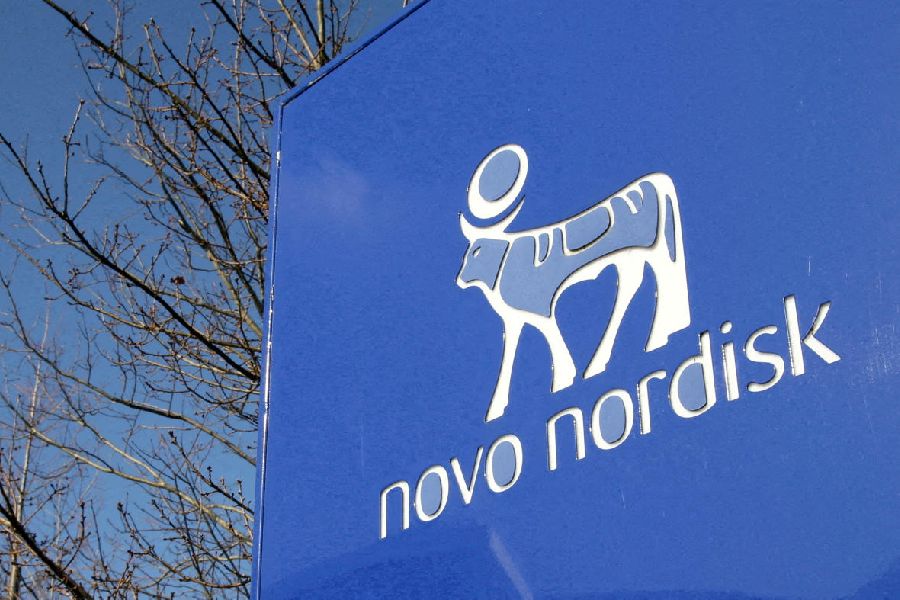Novo Nordisk said on Friday its experimental next-generation obesity drug CagriSema helped overweight patients cut their weight by 22.7% in a late-stage trial, below the 25% it had expected, sending its shares down sharply.
The lower-than-expected weight loss from the drug candidate deals a blow to the Danish drugmaker's ambitions for a successor to its popular Wegovy more powerful than Eli Lilly's Zepbound.
Investors and analysts had eagerly awaited this data as a test of Novo's case that it has a strong pipeline of drugs to follow Wegovy in the fiercely competitive anti-obesity market.
Novo's share price fell by 19.5% after the announcement of the results on Friday to their lowest since August 2023.
The data from the Phase III trial was based on about 3,400 people with a body mass index (BMI) of or above 30 or people with a BMI of 27 and at least one weight-related comorbidity like hypertension or cardiovascular disease after 68 weeks.
Novo said the drug had similar side effects compared to its GLP-1 drugs already on the market. In trials, some 44% of patients taking Wegovy experienced nausea and 30% experienced vomiting, according to prescribing information.
CagriSema is a weekly injection which combines semaglutide, which is the active ingredient in Wegovy and mimics the gut hormone GLP-1, and a separate molecule called cagrilintide that mimics the pancreatic hormone amylin, into a weekly injection.
The two hormones combined suppress hunger and help control patients' blood glucose.
Novo's trial is the most advanced for an amylin drug candidate currently being tested in the market.
Novo's shares have been under pressure this year, significantly underperforming those of chief rival Eli Lilly , mainly due to concerns Novo may be losing its first mover advantage in the obesity drug race to Lilly.
Lilly's own obesity injection - sold as Zepbound in the United States and Mounjaro in other markets where it has launched - led to an average weight loss of nearly 23% in clinical trials.












